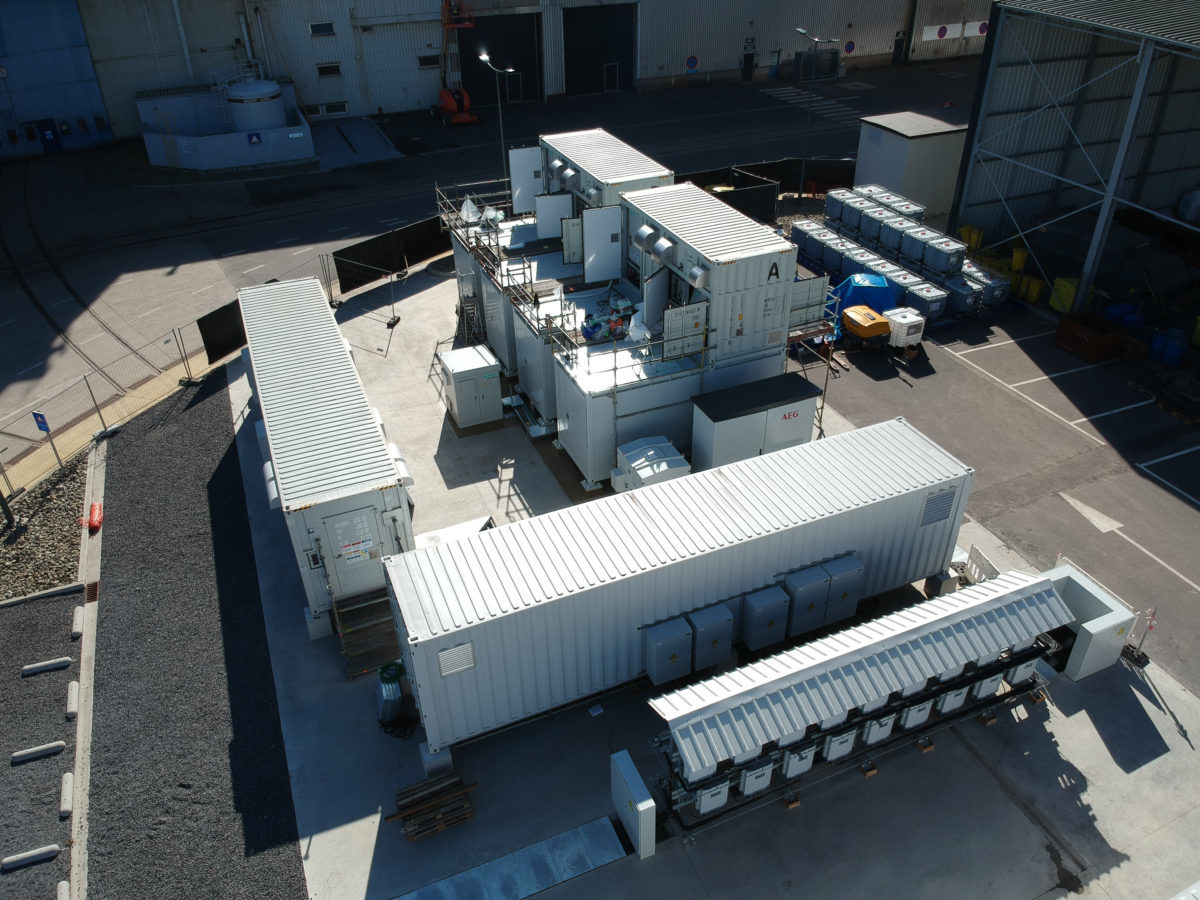From pv magazine global
CMI Group subsidiary CMI Energy will assess battery systems at its headquarters in Seraing, Belgium.
Throughout the year, the mechanical engineering parent company has installed 2 MW of solar PV generation capacity on its premises to power its production facilities. The project behind this, the Micro Réseau Intégré Seraing (MiRIS) evaluates battery systems to provide the best solution to customers, CMI press officer Laurence Petit told pv magazine.
The pilot program features a 1.3 MWh lithium-ion storage system supplied by Chinese battery maker BYD alongside two vanadium redox flow batterries with a capacity of 1,750 kWh. The company is also testing the viability of a new sodium-sulfur (NaS) battery, supplied by NGK.
CMI says the cumulative storage capacity reaches 4.2 MWh, making for the largest industrial storage facility in Europe and testing is starting just as numerous reports and projects are seeking to establish viable alternatives to lithium-ion storage.
Production runs on 100% clean energy
The company says its PV array has an annual power output of 1.75 GWh and its production site has consumption of 1.3 GWh per year.
CMI Energy President Jean-Michel Gheeraerdts, announcing the MiRIS project said: “We now have ways to use green energy sources that eradicate their major flaw: intermittent production. Energy storage and management can be applied in a number of fields as an alternative to diesel generators for unconnected regions; as a way of deferring investment in parts of the network; as a means of optimizing existing photovoltaic or wind systems; and as an enabler of participation in the primary or secondary reserve markets.”
CMI says the facility will investigate different examples of the interoperability of renewables and energy storage technologies. The company will focus primarily on renewable energy time shifting, and energy resale to the grid. The MiRIS system will also enable an evaluation of microgrid operations, and examine the potential for ancillary service opportunities as well as demand response, adds CMI.
Global activity
Canadian distribution system operator PUC Distribution has partnered with storage solution provider Fluence to supply energy storage technology and EPC services for multiple projects, primarily for business customers. The installations will reduce the need for peak-load generation.
Reducing peak-load consumption is high on the agenda for global businesses and a slew of storage providers have moved into the marketplace. Businesses with intermittent high energy consumption pay very high tariffs, as utilities seek compensation for the provision of extraordinarily high energy supply.
Enabling businesses to supplement regular demand with storage systems which are either charged from renewable energy or from the grid at night – when demand is low – can help reduce peak load costs significantly.
This content is protected by copyright and may not be reused. If you want to cooperate with us and would like to reuse some of our content, please contact: editors@pv-magazine.com.









By submitting this form you agree to pv magazine using your data for the purposes of publishing your comment.
Your personal data will only be disclosed or otherwise transmitted to third parties for the purposes of spam filtering or if this is necessary for technical maintenance of the website. Any other transfer to third parties will not take place unless this is justified on the basis of applicable data protection regulations or if pv magazine is legally obliged to do so.
You may revoke this consent at any time with effect for the future, in which case your personal data will be deleted immediately. Otherwise, your data will be deleted if pv magazine has processed your request or the purpose of data storage is fulfilled.
Further information on data privacy can be found in our Data Protection Policy.